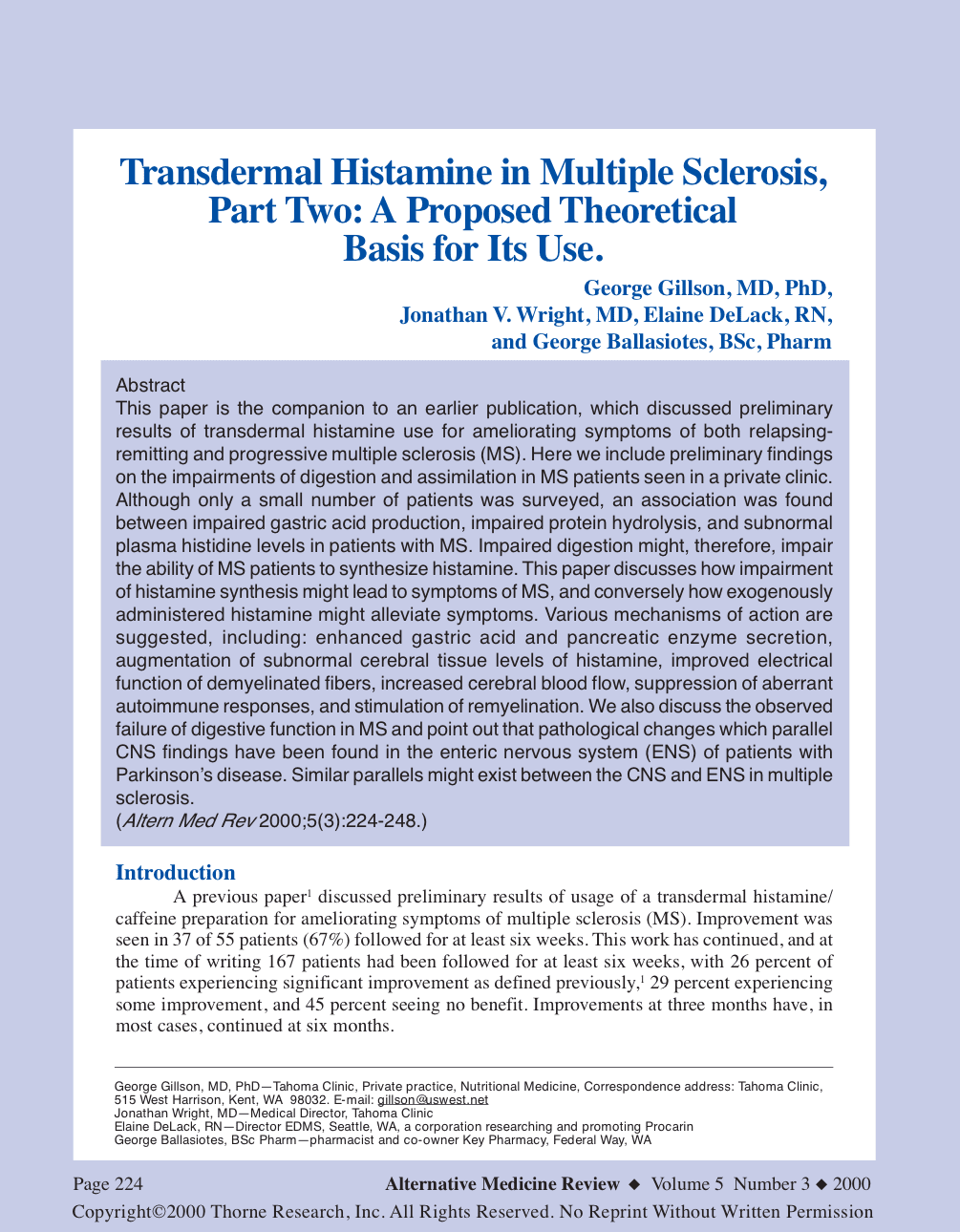Abstract
This paper is the companion to an earlier publication, which discussed preliminary results of transdermal histamine use for ameliorating symptoms of both relapsingremitting and progressive multiple sclerosis (MS). Here we include preliminary findings on the impairments of digestion and assimilation in MS patients seen in a private clinic. Although only a small number of patients was surveyed, an association was found between impaired gastric acid production, impaired protein hydrolysis, and subnormal plasma histidine levels in patients with MS. Impaired digestion might, therefore, impair the ability of MS patients to synthesize histamine. This paper discusses how impairment of histamine synthesis might lead to symptoms of MS, and conversely how exogenously administered histamine might alleviate symptoms. Various mechanisms of action are suggested, including: enhanced gastric acid and pancreatic enzyme secretion, augmentation of subnormal cerebral tissue levels of histamine, improved electrical function of demyelinated fibers, increased cerebral blood flow, suppression of aberrant autoimmune responses, and stimulation of remyelination. We also discuss the observed failure of digestive function in MS and point out that pathological changes which parallel CNS findings have been found in the enteric nervous system (ENS) of patients with Parkinson’s disease. Similar parallels might exist between the CNS and ENS in multiple sclerosis. (Altern Med Rev 2000;5(3):224-248.)

